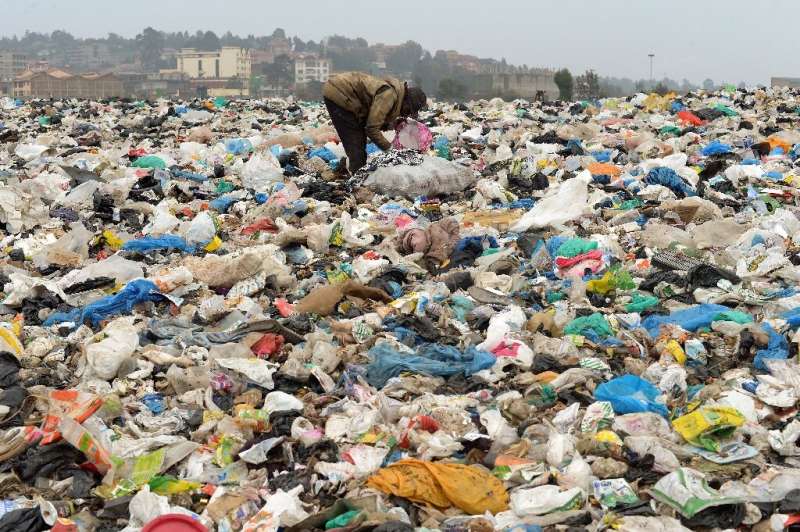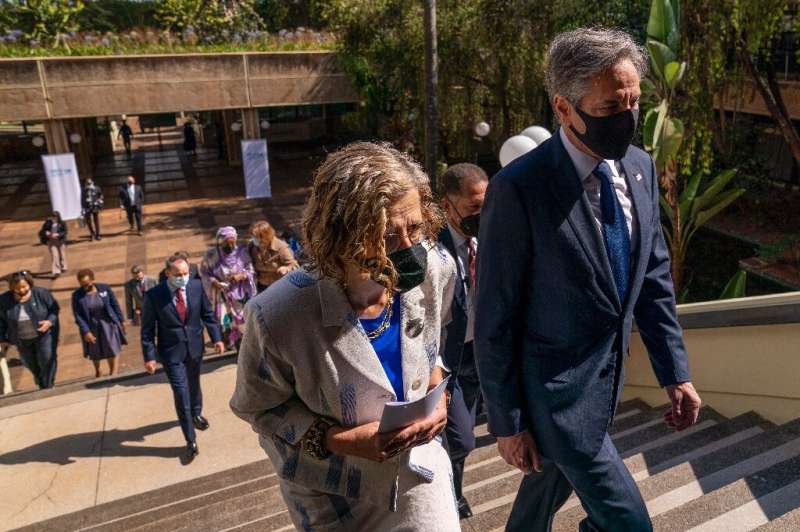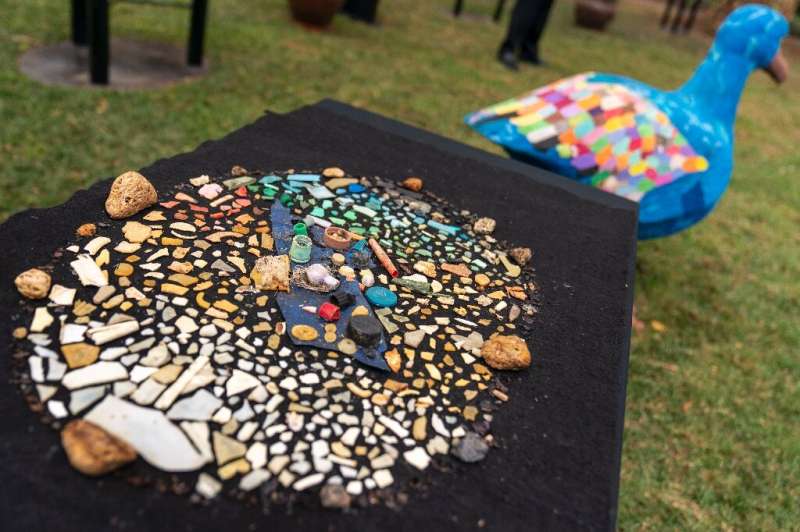US throws support behind treaty to curb plastic

The United States on Thursday threw its support behind negotiations on a treaty to curb plastic pollution, ending a key holdup in international efforts to clean up the planet's oceans and save marine life.
On a visit to the United Nations Environment Programme in Nairobi, Secretary of State Antony Blinken said the United States would back talks in the Kenyan capital in February on a treaty to address plastic.
"Our goal is to create a tool that we can use to protect our oceans and all the life that they sustain from growing global harms of plastic pollution," Blinken said.
"As we know, our health—our survival—is bound up in the health of our oceans. We have to do more to protect them," he said.
About eight million tonnes of plastic end up in the oceans each year, killing or injuring one million birds and more than 100,000 marine mammals, according to UN figures.
Blinken's statement is the latest US effort to ramp up environmental protection under President Joe Biden, who has made the fight against climate change a key domestic priority.
Likely mindful of political realities in divided Washington, where treaties need ratification by the Senate, Blinken called for a plastic treaty in which countries would come up with their own plans of action.

The United States has seen bipartisan calls to clean up oceans with former president Donald Trump signing an act aimed at curbing plastic pollution in the oceans.
But environmentalists say that the previous administration stymied international efforts by opposing a treaty and blaming the problem squarely on China—a major source of plastic processing but of material often coming from the West.
An investigation last year by environmentalist campaigners Greenpeace said that industry groups were lobbying the Trump administration to press Kenya in trade negotiations to reverse its rules and take in plastic trash.
The idea appears dead, with the Biden administration not pursuing trade talks.
Blinken, who is promoting climate action on a three-nation trip to Africa, praised Kenya as an environmental leader including for its ban on single-use plastic bags.
The United States is one of the only nations not party to the Basel Convention, a UN treaty reached in 1989 that regulates the movement of hazardous waste.

Calls to improve coordination
Plastic pollution has soared over the past half century with the advent of cheap, single-use bags and other "disposable" plastic that can stay in the environment for thousands of years.
In the Pacific, an accumulation dubbed the Great Pacific Plastic Patch is around three times the size of France.
A growing number of nations have moved to curb plastic pollution but environmental experts say that a binding, international approach is vital to coordinating efforts.
A study last year backed by the Pew Charitable Trusts said that plastic pollution in the oceans can be decreased by 80 percent in 20 years using existing technologies if there is ambitious and concerted action.
Blinken's support for the plastic effort comes on the heels of the COP 26 summit in Glasgow where the United States and China said they would work together on climate, a rare example of cooperation amid tense relations between the world's two largest economic powers.
In Nairobi, Blinken pressed China to join another climate initiative—an alliance led by the United States and the European Union to cut back on methane.
Methane, emitted by oil and gas production and agriculture, spends less time in the atmosphere than carbon dioxide but is far more potent and is seen as a key area where the world can take action.
"If the world's major methane emitters join us, including China, that would be the equivalent of taking every ship out of the seas and every plane out of the skies in terms of emissions," Blinken said.
© 2021 AFP




















